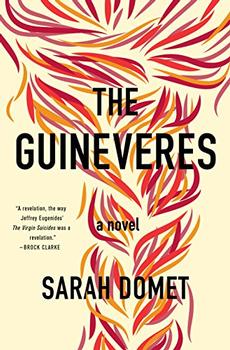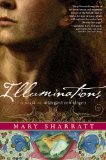Summary | Excerpt | Reviews | Beyond the book | Read-Alikes | Genres & Themes | Author Bio

A History
by Helen CastorMost readers will be familiar with the story of Joan of Arc: An uneducated French peasant girl hears voices from God, convinces the Dauphin (the heir apparent to the French throne) that based on this holy mandate she can lead his armies to victory against the English and then does so, is captured by her enemies and burned at the stake as a heretic, and is canonized for her actions centuries later. While many biographies of this extraordinary woman have been written, Castor takes a unique approach. Rather than concentrating on the life of Joan of Arc, readers learn about the historical Joan the Maid (as she referred to herself and was known in her own time), focusing the narrative on the stage on which Joan's drama played out: a France not only at war with England but divided against itself.
Castor maintains that it's impossible to truly understand Joan's role without an awareness of the historical backdrop, and goes to great lengths to explain the complicated relationships that created the political crisis into which Joan emerged. The focus is French history from Agincourt in 1415 to the end of the Hundred Year's War in 1453, particularly on the divide between the Armagnacs – the group of French nobles who supported the Dauphin (who, with Joan's help, was crowned Charles VII of France) – and the Burgundians, who supported the English monarch Henry V's claim to the French throne. It is this divide which shaped the war before and after Joan's time, and the book's concentration is on the interplay between these two factions. Castor is able to summarize the complexities of this turbulent era succinctly, but with enough detail to be entertaining while still keeping those unfamiliar with this period of French history from getting bogged down.
Joan herself doesn't appear in the book until nearly 100 pages in, and her execution is a mere 100 pages after that; this isn't the saint's life story, and readers who are looking for a new biography about her may be disappointed. Aspects of Joan's life that I expected to find here - such as information about her youth or her interactions during her campaign - are barely mentioned; in fact, the narrative only covers the two years of her life between the time that she first approached the French court with her mission, and her death. The author instead chooses to concentrate on what appears in the historical record (missives dictated by Joan and transcripts from her trial, for example), spending very little narrative space on speculation. Nevertheless, because Joan's words were recorded and saved, in Castor's hands her voice comes across in a truly vibrant way that illuminates her personality as few others have managed.
Joan of Arc felt a little like two different books with conflicting goals – early chapters strictly about French history and infighting, then chapters about Joan the Maid and her remarkable success, and then returning to French history after Joan's death. Both narratives are exceptionally well written, and although I have very limited knowledge of the subjects, they kept me riveted. There did seem to be a bit of a disconnect though, or perhaps my own expectations of what the book would be about, weren't met. Joan ends up seeming more like a minor player in a far-reaching, epic drama, and I felt a little like I was duped into reading a history book rather than a biography. I don't regret having read it – the book is eye-opening, engaging, and overall, excellent non-fiction – but readers should go in expecting a detailed account of 15th-century French politics and not a complete profile of Joan of Arc.
The era was certainly an unstable and volatile time, and the story of Joan of Arc a remarkable one by any standards. Anyone interested in learning more about this period will want to read Joan of Arc: A History; Castor's outstanding ability to convey the important events and people that made up the political landscape make this one a winner.
![]() This review was originally published in The BookBrowse Review in June 2015, and has been updated for the
July 2016 edition.
Click here to go to this issue.
This review was originally published in The BookBrowse Review in June 2015, and has been updated for the
July 2016 edition.
Click here to go to this issue.

If you liked Joan of Arc, try these:

by Sarah Domet
Published 2017
To four girls who have nothing, their friendship is everything: they are each other's confidants, teachers, and family. The girls are all named Guinevere - Vere, Gwen, Ginny, and Win - and it is the surprise of finding another Guinevere in their midst that first brings them together.

by Mary Sharratt
Published 2013
Skillfully interweaving historical fact with psychological insight and vivid imagination, Sharratt's redemptive novel, Illuminations, brings to life one of the most extraordinary women of the Middle Ages: Hildegard von Bingen, Benedictine abbess, visionary, and polymath.
Your guide toexceptional books
BookBrowse seeks out and recommends the best in contemporary fiction and nonfiction—books that not only engage and entertain but also deepen our understanding of ourselves and the world around us.